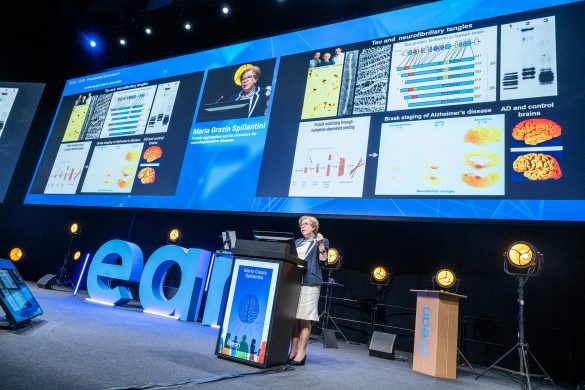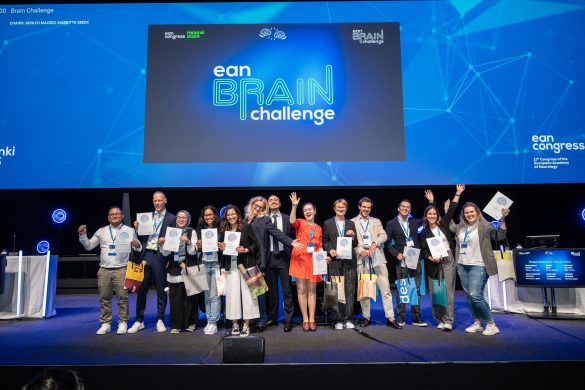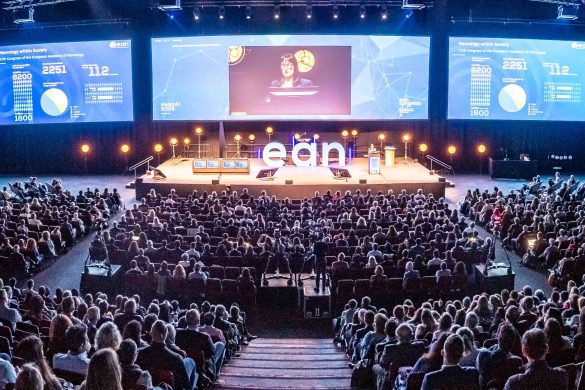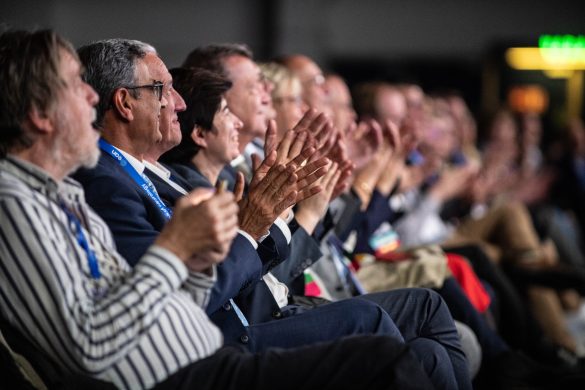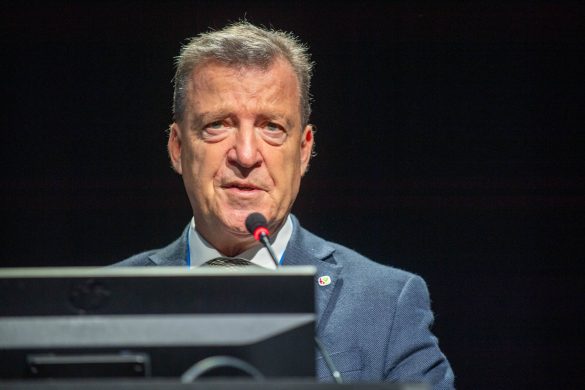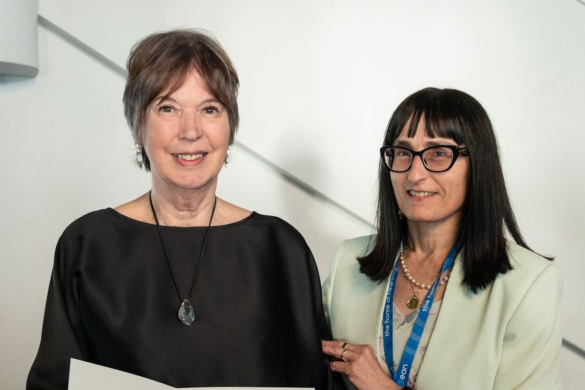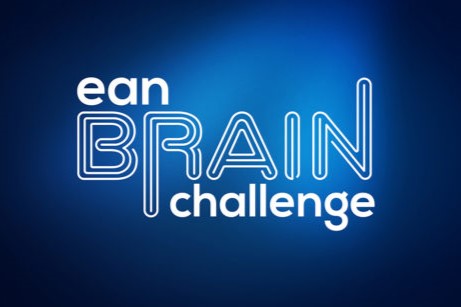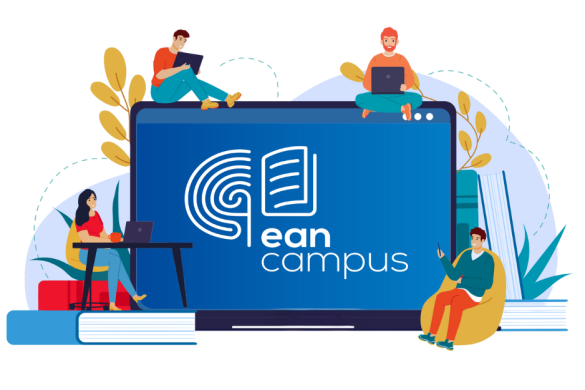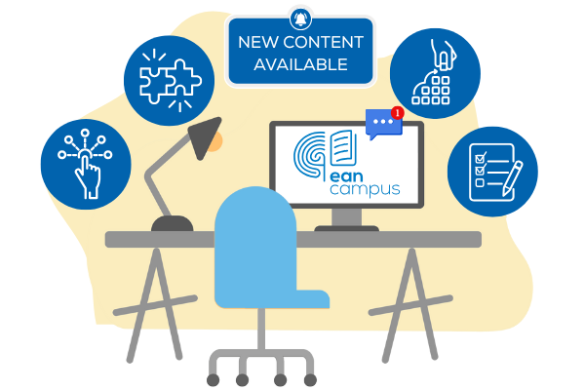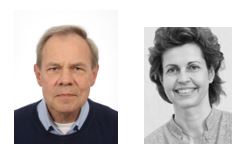
Gabrielle Lohner, Vienna Medical Academy (AU), association manager of the European Board of Neurology.
Jan Kuks, university medical centre Groningen (NL), chair of the EBN examination board.
The 9th exam of the European Board of Neurology took place in Amsterdam on June 23rd last, one day before the start of the 3rd EAN congress.
The European Board (EBN) is a section of the European Union of Medical Specialists (UEMS), the exam is a coproduction of the EBN and EAN. Taking the exam leads to the title “Fellow of the European Board of neurology”. This title is different from “Fellow of the EAN” and unfortunately has no legislative value until now. It is, however, a sign of excellence and may help to be successful in their applications within their country and across the borders within Europe. Several countries outside Europe want their young neurologists to take the exam to practice in their hospitals.
Although the political course of Europe is not quite certain, there will be an increasing mobility of patients and doctors across the European borders and we can be sure that there will be a strong incitement from national governments to harmonize national exit-examinations and certification of young specialists in the future. This may lead to an increasing number of candidates taking the EBN-exam. Such an increase is highly needed to set European standards and to improve the quality of the exams, and we are happy that several neurological societies (from Belgium, France, Germany, Italy, Spain and Turkey) sponsored a lot of candidates. We hope that others will follow supporting the notion of common European standard for professional Neurologists.
It becomes more and more clear, that testing competencies on the long run is more important than examining the capability of instantaneously retrieving factual knowledge. To address this principle, the board exam is modified continuously according to new educational insights and comments of candidates. Furthermore attempts to get Europe-broad accreditation and probably also legislation are made. Finally the reduction of the fees and exams on several locations in Europe are important issues to be tackled.
This year 63 candidates were ready to be challenged, 58 of them passed and received their `Fellowship of the European Board`. One of them wrote “the oral exam was fine and my examiners made me feel more confident because sometimes I get nervous when talking to an examiner and it was a very nice atmosphere”.
The examination board was rejuvenated by two young and engaged examiners, who had been successful in previous exams.
The candidates in Amsterdam had to solve 100 multiple choice questions, of which 60 could be answered with help of a hard copy reference source of choice (open book exam). We started a cooperation with the Swedish company Orzone, providing online examinations. Candidates sent their answers electronically to Göteborg for data processing and statistical elaboration. We made a cautious start but the whole process turned out well, and for the future we will extend our exam with images, movies and signal recordings to offer real life experience to the exam and add new levels of professionalism to our board exam. Whether we will be able to offer our candidates access to internet sources during their open book exams is still a matter of debate. Straight answers to the questions definitely will not be found on internet, but the possibility of fraud by contacting ghost writers is still considered a threat.
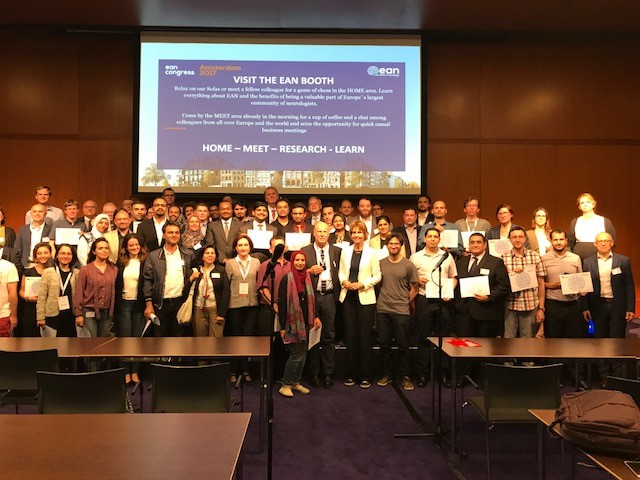
Successful candidates of the 9th EBN Exam in Amsterdam 2017 showing their certificates
For the oral part of the exam, each candidate had to prepare a ‘critical appraisal of a topic’ and deliver and present a neurology-related essay either on an issue in the field of ethics or on a global health topic. We introduced these oral exams to render the candidates able to show their communication-skills and competencies to addressing scientific problems. Furthermore we felt, that cultural differences related to public health and topic could not be molded in closed multiple choice questions. To level language-barriers, candidates were offered to use their own language whenever possible, and examiners were instructed to examine substantiality, not language-skills, and to help the candidates as much as possible. If needed, candidates got personal help and feedback via internet with the making of their submissions.
We provided our candidates with a full personal report on their achievements to make them able improving themselves in fields where they have not performed well. One of the candidates wrote:
“Questions were well distributed and I found after the result that I should more focus on chapters like cognition, trauma, pathology and physiology”.
As well as in previous years the candidates gave their feed-back with both positive and critical comments, and we will use these to improve future exams.
A full report on the exam can be found on our website: www.uems-neuroboard.org
After the successful 9th EBN Exam in Amsterdam a 10th will take place next year at the site of the EAN-meeting in Lisbon, Portugal. All information can be found on our website as well.
We are now already looking forward to receiving new applications. Please look for the early registration procedure at our website (www.uems-neuroboard.org ).
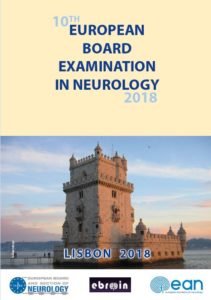
For the exam in Lisbon 2018 we will offer a reduced fee for members of RRFS (Resident and Research Fellow Section of the EAN) for the first time. Further information on fees can be found on the website as well.
We will do our best to offer a challenging and fair exam with intensive coaching in the period of preparation – if required.
We also welcome colleagues who are interested to help us with providing further input and help for next exams. Do not hesitate to contact the chair of the examination committee in case of any further questions (j.b.m.kuks@umcg.nl).




